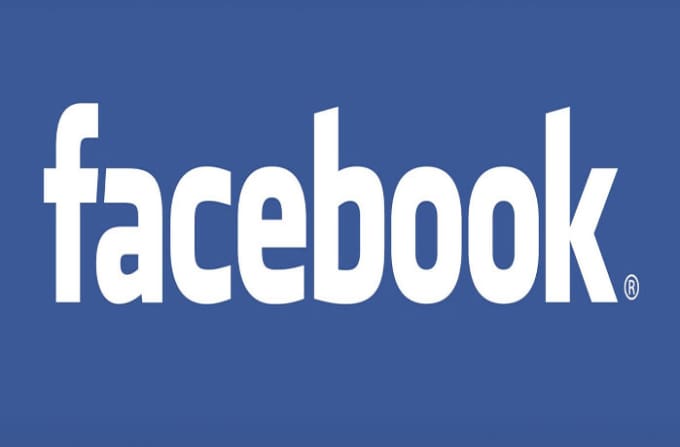So I thought I'd share what I think I know about how Facebook decides what to show you.
My hope is that people will stop believing in what sounds to me like superstition and magic and start thinking rationally about it. Maybe, this breakthrough will light a fuse and all of the public discussion about tech and algorithms work will start getting more sensible.
Let's start with how Facebook decides what to you show you.
If you only had six friends on Facebook, Facebook would probably show you all their posts. But, once you have sixty or six hundred or six thousand friends, Facebook must make lots of systematic decisions on what to show. A good starting point to think about this is to ask yourself, how should Facebook decide what to show you. I'll start with three questions.
One, how does Facebook decide which of your friends you are interested in hearing about? Let's assume that you obsessively visit one of your friend's Facebook pages, do you think Facebook should take this as a signal that you are interested in that person and show you more of their posts? Of course, the answer is yes. Similarly, what if you like, comment, and share a large number of a certain friend's posts? Again, Facebook will take that as a signal of your interest in seeing more from that person.
What about the opposite, ie some friends whose pages you never visit and whose posts you ignore? Should Facebook take this as an indication that you're not interested in those people and show you less of their materials? And of course, the answer is that FB does note your indifference and tend not to show you their stuff.
Second question: do you think Facebook should show a preference to show you the most recent posts over ones that are a week or a month or a year old? Are you interested in "last week's news?" Probably not. So there's a time decay concept that FB follows and they are more likely to show you posts by your friend if you are online exactly when they post them than posts that the same friend made two days ago.
Thirdly, if a post by someone seems to get a lot of engagement in the form of people commenting on it, liking it, and sharing it, do you think they should show that post to more people? Again: YES. A post that everyone seems to think is worth commenting on or liking or sharing is a very important signal to Facebook that something interesting has been said so it should be shown to more people. If a single person tends to always get lots of interaction, FB might even decide ahead of any signals for that specific post, to show it to lots of people based on that person's track record.
As far as I know, those are Facebook's big three foundation policies in their algorithm of what posts to show. To summarize:
1. Who do you appear interested in, they'll show that to you more. This is called affinity.
2. If you are online at 3 am and one of your friends posts at that unholy hour, FB is very likely to show it to you and the other handful of people who are on FB at that time. This has two reasons. One, immediacy is preferred by most people. This is the principle of Time decay. However, FB also uses the first handfuls of people who see a post to decide how interesting that post is. If none of the first viewers engage, FB might conclude that this post is a bit of a dud of a post so it'll be shown to less people. But, if lots of people in those first handfuls engage with that post by commenting and sharing, FB now has the signal that this post is hot and the showing of it will trend upwards.
3. So the third big rule is the appeal of each post: The Weight. Or the overall track of the individual.
So those are the basics (I think) of the Facebook decision making. I suspect the next set of issues that FB considers are:
1. Ads. FB sells ads, Much of what you see is paid advertising. People pay to show you ads. Also, on pages of businesses, FB could extract more advertising dollars by only showing it to a few percent and charging money to get it shown more broadly.
2. Pages and groups. FB has special policies around different affinities you've shown by signing up with pages (not of people but of companies and things) and groups.
3. Look-alikes. FB will for many decisions reason that you are behaving and have demographics like some group and will make decisions based not just on your shown preferences but by thinking that you like what other people similar to you (family, friends, look-alike groups) have been shown to like. I think they are particularly prone to show you what your friends are seeing since that seems to create a special type of back and forth
4. Types of posts. FB probably does not like posts with links to other sites that lead people to leave FB. So they prefer posts with videos that are uploaded to FB, they probably don't much like posts that include link to videos on Youtube. This is probably simple self interest that FB wants to keep people on their platform so they can show you more ads. Probably, FB likes original graphics on FB and other internal to FB links. Does FB prefer long or short answer posts? This is a trick question because of what we know: FB will take its cues on whether to show you graphics or long posts probably based on your personal history of engaging more or less with long posts or with images. Again, this is what I think. Unlike the big three at the top, I haven't really researched these questions.
5. Outrageous stuff. There is a lot of news about how FB prefers to show you views that are slightly more extreme than yours or the total opposite since both seem to produce a certain type of reaction which results in higher engagement. But this is an advanced question that we'll leave aside for now despite it probably being the reason that the world is not getting along and why WWIII is just around the corner. It's so FB could make a little more money and incidentally, build a hateful unstable world. But let's not get into that now.
Does this help you understand Facebook's decision-making?
If you are interested in learning more, this subject is called the Facebook EdgeRank algorithm. Many businesses and social media people are obsessive about trying to understand and manipulate this algorithm and there is a lot written on it.
Other interesting algorithms to think about to help understand your daily media experience:
- How does Google decide what to answer your query with?
- How does Youtube decide what videos to suggest?
- What about Instagram and Twitter? How is Facebook different than Twitter in showing?
- What will the stock market do tomorrow?
- And what mood will my wife be in tonight?
BTW - if this article helped you, would you leave a comment? I see that there are about 100 visitors a day of this site but I don't hear much from you.

